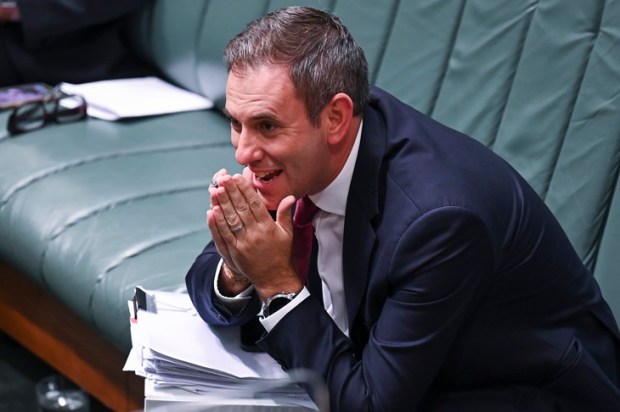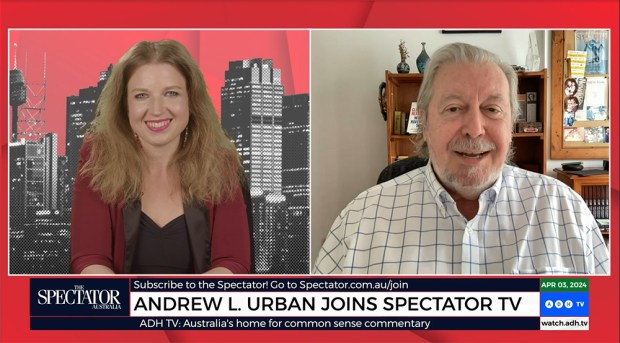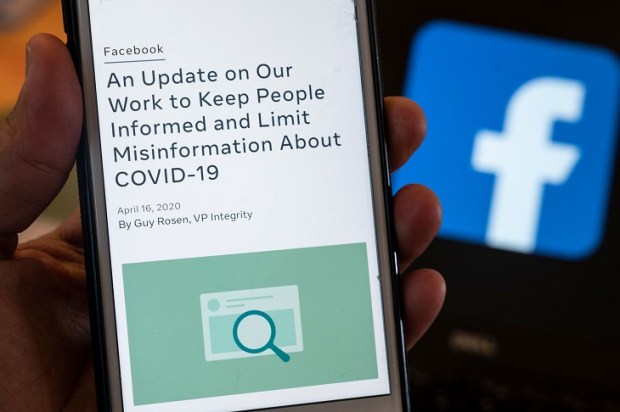The Albanese government’s attempt to revolutionise Australia through its industrial relations Loophole Bill is struggling.
The government wanted to ram the Bill through Parliament before Christmas. The crossbench in the Senate said ‘no’ and with support from the Coalition, pushed the Bill off to a Senate Committee due to report in early February next year instead.
Senate hearings have been held during November. The government has been doing deals with some of the industry associations to break the otherwise united opposition of business to the Loophole Bill.
For example, the Australian Hotels Association supported an apparent watering down of the highly complex definitions of casual workers in the Bill which had drawn opposition from most of the other industry groups. One of the mining associations agreed to technical changes to the definition of labour hire. That association lashed out at the other mining associations who criticised the ‘brother’ organisation for supporting the government.
The government’s probably pretty chuffed at these fights between industry groups. ‘Divide and conquer’ is their strategic mantra. But it’s really no different from the wars that go on between rival unions. Unions/industry groups are always trying to get ‘one up’ on their rivals in battles over membership.
But when you look at the amendments to the Bill that the government has made, they all come unstuck in the detail. In other words, the amendments are designed for media puffery without changing the substance of the Bill itself.
Take this example. The government has put proposed amendments to the ‘employee-like’ provisions to try and hose down the opposition to the Bill from the big ride-share (gig) companies.
The amendment states that, when making an order, the Fair Work Commission (FWC) ‘… must not include terms about any of the following matters…’ and then lists the excluded matters. The exclusion of the listed matters removes much of the threat to ride-share businesses.
But one paragraph later the amendment then states: ‘Despite the subsection (above) a term about a matter mentioned (above) may be included … if the FWC (Fair Work Commission) is satisfied that the inclusion of the term (matter) is appropriate…’ That is, the amendment says that something is ‘out’ but is also ‘in’. Ha! What a trick!
The Albanese government has nonetheless put out media coverage that they have modified the ride-share (gig) provisions with the ride-share companies agreeing. But in reality it has changed nothing. Brilliant!
The government is trying to deploy the same tactics that it tried with the Voice to Parliament.
With the Voice it tried to keep everyone focused on the emotional ‘big picture’ idea. It avoided disclosing or discussing the detail. But the more people heard about the detail, the more people moved against the Voice.
The Loophole Bill is like the Voice but with a difference. The Loophole Bill has 284 pages of detail (plus 500 pages in the Explanatory Memorandum). But the government’s and unions’ pitch has been to focus on the emotional big picture. ‘Pity casual workers’ they say. And ‘higher wages for workers!’ But the market pitch comes unstuck when the detail is examined. And this is what the independent Senators and MPs have been doing – digging into the detail!
The detail and the concentration of economic power
By design, the Loophole Bill removes the right of Australians to be small business operators – particularly to be self-employed, independent contractors, to be their own boss. It forces every self-employed person to be an employee whether they wish to be an employee or not. The Bill is oppressively dictatorial in removing choice.
Clauses in the Bill capture all self-employed people, including all trades people, consultants and so on, but doubles down on capturing self-employed owner-drivers and anyone wishing to earn an income using digital (gig) platforms.
In doing this, the Bill forces every person to earn their income through an ‘employer’. It eliminates the ability of people who wish to be a micro/small business person from being just that. As such there could be no greater legislative formula for the destruction of competition at the core of the Australian economy. The inevitable outcome is the favouring of big business.
But the Bill goes further. It creates mechanisms to facilitate, sanction, and ‘legalise’, collusion to control prices at the individual and sectoral levels where currently small business people operate and where they are entitled to, and do, compete. In doing this, the Bill will facilitate an immense concentration of economic power in the hands of big businesses.
Some of the practical outcomes are as follows:
The owner-driver sector will be wiped out over time. Large numbers of self-employed owner-drivers will go broke. Based on previous experience, suicides will likely occur as a result. Numbers affected: 40,000 to 50,000 people at least.
Large numbers of digital (gig) platform participants will find that the Loophole regulations will make their businesses commercially unviable and will exit the market over time. This will impact most heavily upon the 97 per cent of people who use the gig economy for top-up income. Numbers affected: 970,000 people plus.
IT, management and other such consultants will progressively be forced to provide their services through dominant, large consultancy firms. This problem already exists but will get worse as self-employed consultants will have increased difficulty contracting directly with clients.
Tradespeople in the housing sector, in particular, will progressively lose their independence and be forced to work through large construction firms under similar arrangements to those operating in the commercial construction space. Housing construction will, over time, become concentrated in the hands of a small number of big business builders.
The cash economy will expand. People denied access to gig-type work will turn to the shadow economy and under-the-table payments. (Note: Because gig work is all online transaction managed, payments are transparent and traceable for tax and other regulatory purposes.)
Big business will have an expanded control of the Australian economy. The suppression of small business activity, and in many cases the elimination of small business, will favour big business. The Bill will create a competition vacuum in the economy into which big business will happily move.
All self-employed people and the people/businesses who use their services will be faced with massive confusion and uncertainty over conflicting obligations in relation to tax, competition law, corporations law and more. This of itself will trigger a progressive collapse of the small business sector over time and create regulatory (tax, etc.) enforcement problems.
The detail and the clash with competition law
Unfair contract laws have been created and boosted to stop big businesses imposing unfair contracts upon small business people. These laws are administered by the Australian Competition and Consumer Commission (ACCC). The Loophole Bill creates the capacity for Fair Work Commission rulings that would create a breach of the unfair contract laws, particularly in relation to price-fixing. And the Loophole Bill would arguably stymie the ACCC from ensuring compliance with the unfair contract laws. This scenario is real.
In 2015, then ACCC Chair Rod Simms gave a major speech on the issue. He highlighted specific cases where it could be argued that, under the mask of an industrial relations agreement, a business had colluded with unions to create agreements that would damage competitors.
The Simms speech is of major importance.
As an example, Rod Simms said of the Toll case:
Unions have been given a clear role under the law to represent their members and take action seeking improved wages and conditions. However, this does not give them or businesses cooperating with them a licence to seek to regulate markets. They could take themselves outside the above exemptions if they seek to determine which firms may operate within markets, what prices they can charge or how bids for work will be determined. In a market economy it should be the market that sets prices and determines who participates and who wins work, not unions or businesses. (page 3)
The Loophole Bill would result in the regulation of the road transport market through the backdoor of the industrial relations system. These proposed laws would give unions ‘…or businesses cooperating with them a licence to seek to regulate markets’.
The very structure of the Loophole Bill would result in the outcome that Rod Simms says ought not occur.
A revolution? You betcha! In its own way the Loophole Bill is an agenda for a revolution by changing fundamental aspects of the law and some of the crucial institutions that underpin our economy and society. In this respect it’s very Voice-like.
Ken Phillips is Executive Director of Self-Employed Australia and publishes on Substack.
Got something to add? Join the discussion and comment below.
Get 10 issues for just $10
Subscribe to The Spectator Australia today for the next 10 magazine issues, plus full online access, for just $10.


























Comments
Don't miss out
Join the conversation with other Spectator Australia readers. Subscribe to leave a comment.
SUBSCRIBEAlready a subscriber? Log in